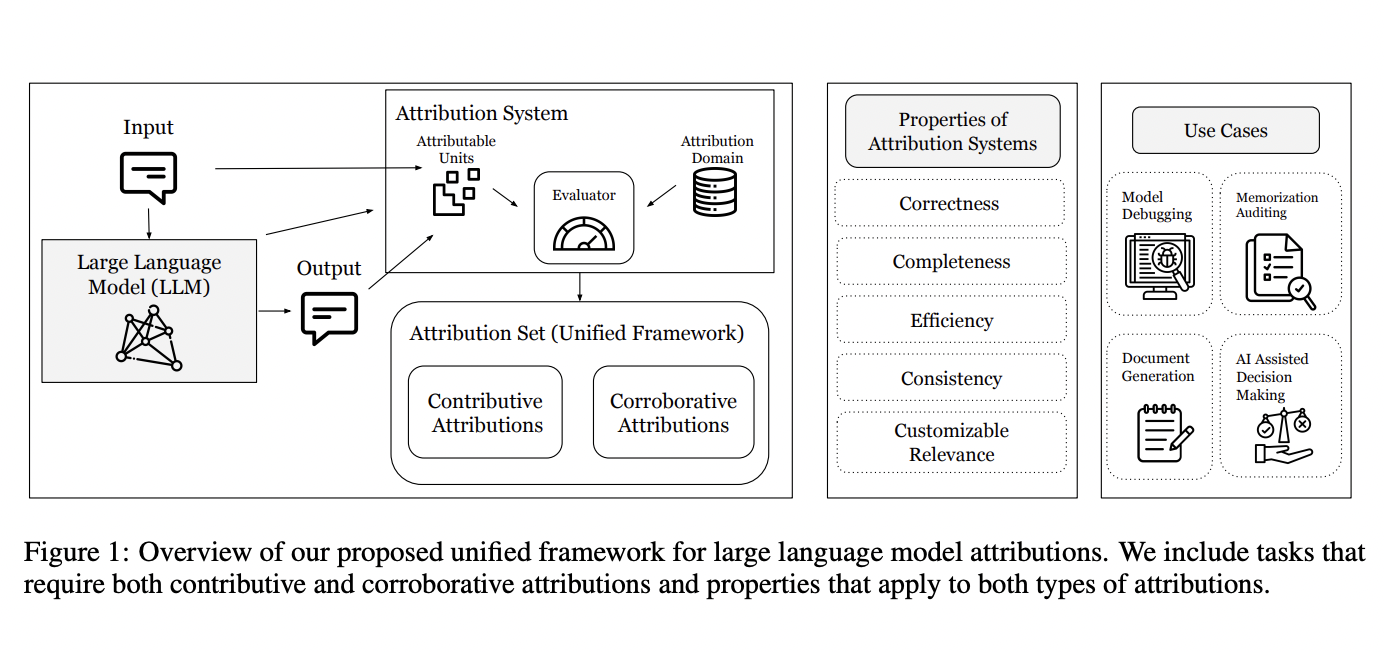Researchers From Stanford University Introduce A Unified AI Framework For Corroborative And Contributive Attributions In Large Language Models (LLMs)

Large Language Models (LLMs) are the latest advancement in the exponentially evolving field of Artificial Intelligence (AI). Though these models demonstrate incredible performance in tasks including text generation, question answering, text summarization, etc., there comes a challenge with the accuracy and security of the data they generate. These models can sometimes fabricate or produce inaccurate information,i.e., hallucinate and produce an unreliable output.
Tracing the source is necessary to assign moral and legal blame when the model’s output causes harm; however, attribution is a difficult task that requires creative technical research. Research on the attribution of LLM outputs to sources has mostly focused on two areas: Training Data Attribution (TDA) and citation generation.
In recent research, a team of researchers from Stanford University has introduced a unified framework for attributions of Large Language Models. The research is about citation generation and TDA, combined under corroborative and contributive attributions. Contributive attribution concentrates on verifying the source of the created content, whereas corroborative attribution seeks to validate that the output is accurate in accordance with outside knowledge.
The team has examined several attributes desired in various settings and has provided precise definitions for each form of attribution. This method encourages the creation and assessment of attribution systems that can provide thorough attributions of both kinds, and it is a first step towards a well-defined but flexible concept of language attributions.
The framework has been utilized in actual use cases to demonstrate its usefulness. The examples illustrate situations where one or both kinds of attributions become necessary. In the process of creating legal documents, internal validity, i.e., attribution of training data, confirms the information’s source and dependability, while external validity, i.e., citation creation, makes sure the material complies with legal requirements. Likewise, in the context of medical question answering, both attributions are important for verifying response accuracy and comprehending the sources that impact the model’s knowledge.
The team has summarized their primary contributions as follows.
- An interaction model that combines contributive and corroborative attributions, highlighting shared elements, has been presented.
- The combined framework has been improved by finding attributes relevant to both kinds of attribution.
- A comprehensive analysis of current contributive and corroborative attribution implementations has been carried out to provide insights into real-world uses.
- Scenarios that are essential to attributions, such as the creation of legal documents, have been described along with the qualities that are required for efficacy.
In conclusion, the framework is a great introduction and can be beneficial in the standardization of attribution system assessment, promoting a more systematic and comparable evaluation of their efficacy in various fields. This can improve and expedite the use of large language models by offering a consistent and cohesive method for attributions, solving the crucial problem of output reliability.
Check out the Paper. All credit for this research goes to the researchers of this project. Also, don’t forget to join our 34k+ ML SubReddit, 41k+ Facebook Community, Discord Channel, and Email Newsletter, where we share the latest AI research news, cool AI projects, and more.
If you like our work, you will love our newsletter..
Tanya Malhotra is a final year undergrad from the University of Petroleum & Energy Studies, Dehradun, pursuing BTech in Computer Science Engineering with a specialization in Artificial Intelligence and Machine Learning.She is a Data Science enthusiast with good analytical and critical thinking, along with an ardent interest in acquiring new skills, leading groups, and managing work in an organized manner.













